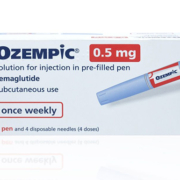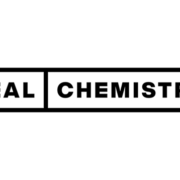The AI obsession
By Maria Fontanazza | [email protected]
It was last year’s hottest topic, and this year it is sure to be at the top of the list. It dominates conversations, says Christopher Dimmock of AbelsonTaylor, and it sure does dominate my inbox. Artificial intelligence. I receive an inordinate number of pitches about AI daily – and that won’t change anytime soon. Thankfully, I think we have reached a point where if you really want people to listen to what you have to say about AI, you’ll have to provide more concrete examples of its application(s). To fully highlight Dimmock’s sentiment, “Artificial intelligence and generative AI in particular will continue to dominate our conversations as it comes into play in very real terms with how we create and design our marketing mechanics in the coming years.” Dimmock and other industry leaders in pharma marketing shared perspectives on the “obsession” with AI in our annual Agenda feature, “Now what?” by Josh Slatko.
According to Deloitte’s 2024 Global Health Care Sector Outlook, AI is poised to save the U.S. healthcare system about $360 billion over the next five years. Private equity funding invested in healthcare AI between 2019 and 2022 amounted to $31.5 billion. And within the past seven years, about 1,500 healthcare AI vendors have emerged. “In 2024, AI is expected to play a pivotal role in streamlining administration, diagnosis, treatment, and patient care. From predictive analytics to automating electronic health records, AI can further enhance the precision and efficiency of healthcare delivery,” Deloitte stated.
Last year FDA more formally acknowledged the increasing prevalence of artificial intelligence and machine learning within drug development and manufacturing, reiterating that they were “no longer futuristic concepts,” but rather a “part of how we live and work.” It noted that in 2021, more than 100 drug and biologic applications that were submitted to the agency included artificial intelligence and/or machine learning components.
The agency released two discussion papers aimed at creating conversations within the drug development community, while acknowledging the ethical challenges and security risks that the technologies can introduce. “There are also concerns with using algorithms that have a degree of opacity, or algorithms that may have internal operations that are not visible to users or other interested parties. This can lead to amplification of errors or preexisting biases in the data,” stated Patrizia Cavazzoni, M.D., director of the Center for Drug Evaluation and Research at FDA.
From the risks to humanity to enabling breakthrough discoveries in life sciences, like it or not, embracing AI – albeit at different levels – is a necessity. Yet, its “initial buzz and anticipation must be weighed against the potential consequences and opportunities for misuse,” notes EVERSANA Chief Information Officer Faruk Capan in “From the Manhattan Project to AI: tracing the ethical parallels in business innovation. “The ongoing journey of technological advancement demands a balance between innovation and ethical responsibility,” Capan cautions.
And generative AI, with its ability to create more predictive patterns, could have an even more significant impact within the pharmaceutical industry. “Throughout my pharmaceutical market access career, I’m unsure that anything has created as much of a buzz in the marketplace as artificial intelligence,” says Entrée Health’s Jessica Pugliese, as she goes on to describe the cautious enthusiasm in this space. Read more of her insights on AI adoption in “10 trends shaping the future of market access marketing”.
“AI-based technologies will drive value in the realm of predictive analytics. For example, pharma companies can leverage AI technologies to analyze large volumes of post-market safety data to better understand patient responses, and then use that information to improve the next round of drug discovery and development for a particular indication,” says Jane Reed of Linguamatics in a Q&A with Andrew Humphreys about how pharma companies are using AI-based technologies to improve their internal processes, from data entry and extrapolation to mapping adverse events.
If you need a break from the AI-overload, head to Chris Truelove’s analysis of GLP-1s, a class of medications that are experiencing a meteoric rise, fueled by America’s weight-loss obsession. In “Realizing the value of obesity drugs,” Truelove delves into the supply chain challenges and high costs that these therapies are up against, along with the unknown side effects. Yet, the appetite for GLP-1s is massive, with forecasts from J.P. Morgan Research expecting the market to exceed $100 billion by 2030 and users in the United States to be around 30 million, which is about 9 percent of the U.S. population.
One thing that AI and GLP-1 drugs have in common is that they are both revolutionizing health care. Their opportunities for various applications go well beyond current practice. We are, without a doubt, at just the beginning of what is a transformative period in health and technology.











